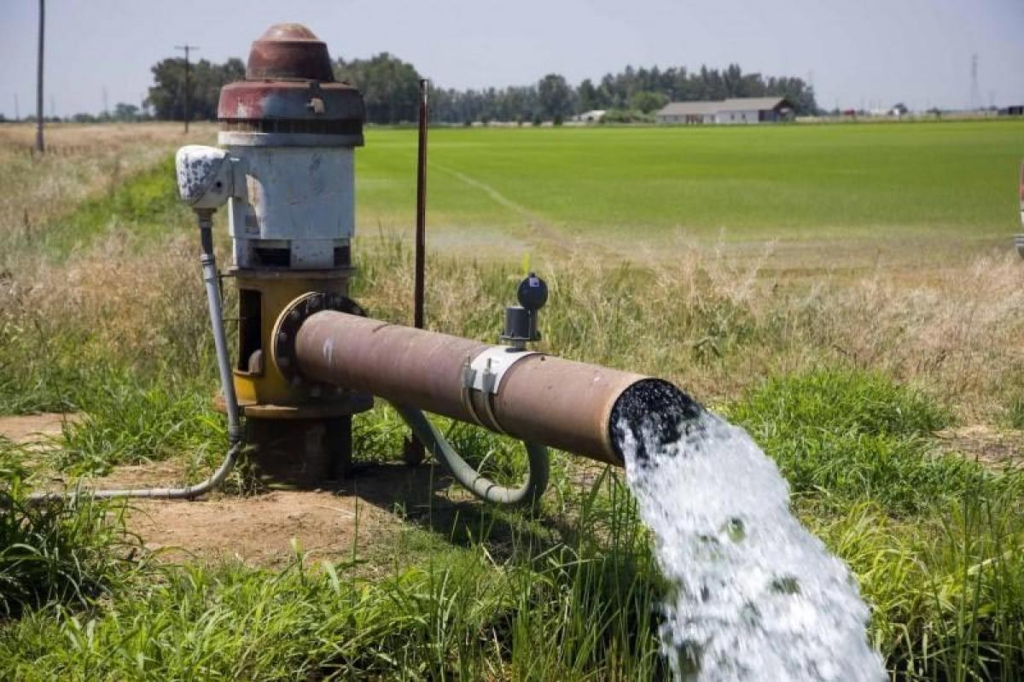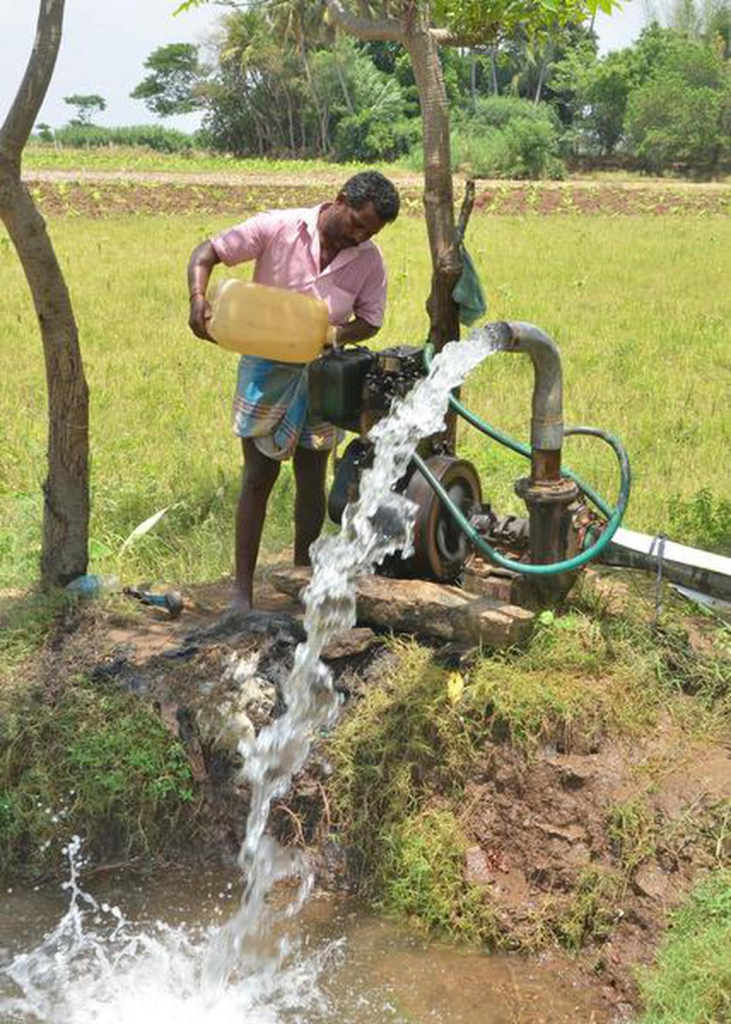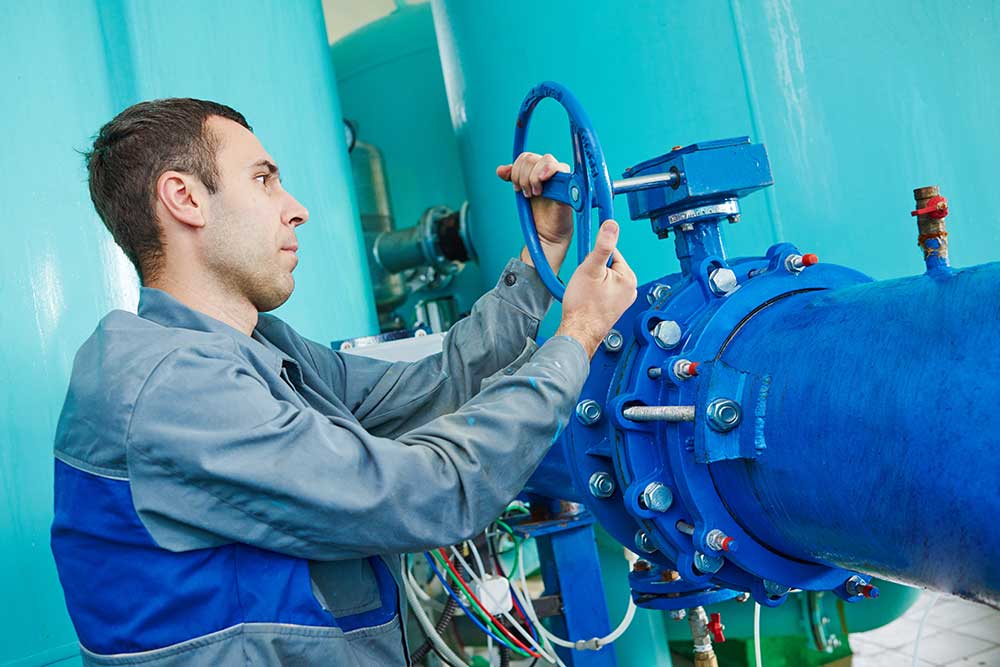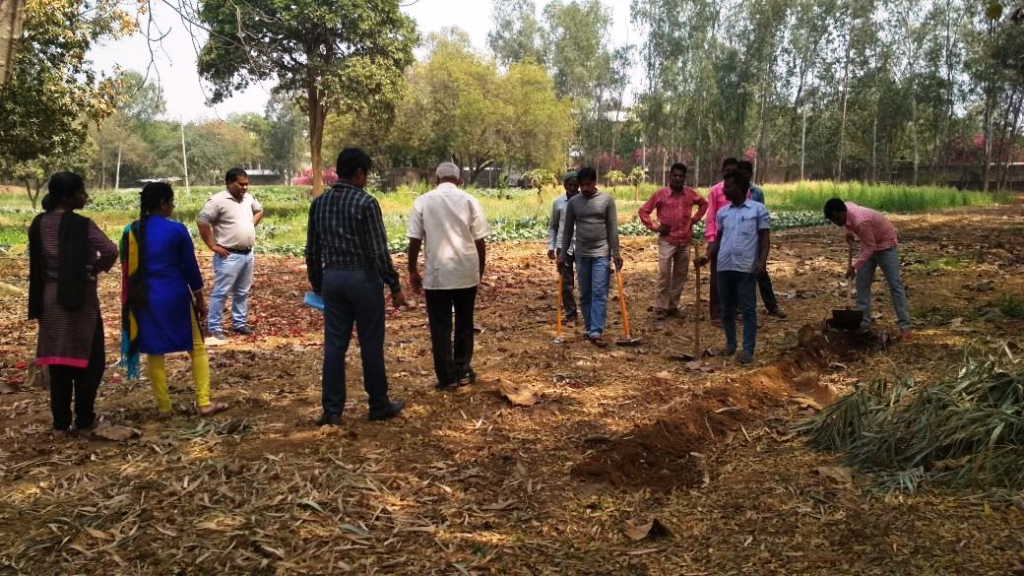Village Water Technician
The Rural Water Specialist manages assisting the city engineer in preparing the layout of the plan, building and maintaining water harvesting facilities (WHS) and small-scale irrigation systems (MIS) in the water shed. Short job description: The Village Water Specialist manages to support a water-based engineer to encourage farmers to participate, oversee the construction of WHS and MIS placement, measure and plan similar payments. Record keeping in this regard is under his care. Your Qualities: A District Water Specialist should have the ability to plan, plan, standardize and learn new technologies and processes. Must have reading, writing and communication skills Village Water Technician.

Carry out construction of water harvesting structures (WHS) Village Water Technician:
In order to be effective, that person must be able to: PC1. identify the basic technical parameters of the various WHS types such as suitability and feasibility of the WHS site selection process equipment testing and evaluation of the WHS site status, size and benefits of WHS PC2. identify possible areas / areas in the main drainage lines / nalos of WHS construction throughout the wetland taking into account such parameters as: nalo bed slope towards the entrance of the construction line width of nalo bed in the construction line large storage capacity water and immersion details find the right foundation and type the soil frame find the emergency dump / multi-site PC3 immersion plan. arrange a visit to the water engineer and affected farmers and committee members at the proposed WHS site to complete the PC4 site. collecting the necessary data for the purpose of designing from primary and secondary sources such as: nearby sources at season PC5. do a landscape study to draw a shortcut and a long section of it in the selected WHS break up the possible alternative space into 5x5m or 10x10m grids per need (TBM) and write this in the field book accordingly in the event of a minor WHS, take the building line and line levels
linoleum bed to cover storage in a space of 5m or 10m PC6. encourage landowners to participate in the construction of WHS through voluntary (shaman) or donation / charity discuss the desired and potential benefits of WHS with farmers discuss the expected contribution of farmers who benefit from the construction and maintenance of WHS in the future. according to each design In order to function properly, one must be able to: PC7. mark the WHS suspension as the design provided by the watershed PC8 engineer. split work to work and view work done in a safe and efficient way for PC9. view each quality construction parameter under the guidance of a water engineer wipe and clean the site properly and as needed take proper care while using different tools and equipment time during construction at the appropriate levels ensure design and provide the required amount of materials and equipment needed for construction. PC11. report disputes from the workplace to the committee and manager and try to resolve them where possible Village Water Technician.
Organizational Context (Knowledge of the company / organization and its processes):
The user / person at work needs to know and understand: KA1. organizational standards, process standards and procedures for making water harvesting structures KA2. job responsibilities / tasks and standard operating procedures
Technical Knowledge:
The user / person at work needs to know and understand: KB1. the importance of public participation KB2. concepts and practices in participatory and participatory water management
Core Skills/Generic Skills Village Water Technician:
The user / person at work needs to know and understand how to do this: SA1. chalk down action plan SA2. write a report on the processes and results achieved by SA3. record the men, equipment and funds spent during the SA4 assassination. write various types of work records and reports on water budget and MIS for water committee Learning Skills The user / employee needs to know and understand how to do this: SA5. read the internal information documents submitted by the SA6 developer and manager. read maritime guidelines and structural limitations SA7. read measuring tape with other field equipment SA8. read and understand asset liabilities, with product code and descriptions of oral communication (listening and speaking skills) The user / employee needs to know and understand how to do this: SA9. discuss job lists, schedules and tasks with developer SA10. liaising with community institutions, farmers, workers and engineers SA11. listen to and understand the information provided by the engineer and specialist of MIS SA12. ask a question to community members and engineer B. Making a Professional Skills Decision A user / employee needs to know and understand: SB1. understand site problems that occur when performing WHS and notify developer SB2. analyze a situation / problem that may arise on site with landowners, jobs and water committee on a daily basis SB3 jobs. to support the water committee in decision-making on crop patterns and SB4 water use technology. in the case of a specific deviation in the setting of the MIS, make appropriate decisions in consultation with the developer and the farmer Plan and edit The user / person on the job needs to know and understand that: SB5. planning, measuring and editing tasks provided by the SB6 developer. organize the people and resources needed for SB7 operations. organize and organize local people to perform community action such as shaman (free work), community donation in cash or courtesy of SB8. organize and organize farmers’ meetings through the release of the SB9 water budget. customize staff and equipment and customize technology for farmers’ needs and priorities In Customer Centricity The user / employee needs to know and understand: SB10. to develop relationships with landowners / farmers, labor committee and water resources SB11. understand their concerns and priorities about the feasibility and feasibility of SB12. to win the confidence of a marine engineer for efficient use

Problem Solving The user / person at work needs to know and understand how to do it: SB13. i. use common sense and make daily judgments SB17. use thinking and feeling skills to detect any problems that may arise during the operation Village Water Technician

Carry out water budgeting of the watershed and effective water management Village Water Technician:
o be competent, that person must be able to: PC1. visit the daily rain gauge station and record daily rainfall (mm) from liquid PC2. visit and collect information on the state of water stored on WHS on PC3 with water. check the pattern of use of available drinking water, domestic, irrigation and other purposes PC4. collect information on plant species, cultivation, sources of irrigation methods and methods in kharif, rabies and PC5 summer seasons. to collect data on livestock species and occasional water use PC6. prepare, renew and display in the public area the water budget showing available water, consumption pattern and balance available for the coming season under the direction of engineer water for plants, livestock, domestic purposes and drinking Plant planning and water conservation technology in accordance with PC7 allocation. explain the water budget shown to the public from time to time and promote appropriate water management strategies including crop pattern, crop area, small irrigation, etc. you can: PC8. encourage farmers to adopt micro-irrigation systems (MIS) such as drip, Sprinkler, etc. as a smart water management tool PC9. visit the farms and conduct a survey on these farms to obtain MIS details source of irrigation (well, well well, pond, etc.) including water availability, pump details and existing pipeline to determine the required size area measurement per building plan i -MIS
11. collect the farmer’s previous contribution, if any, before the PC12 purchase order is placed. verify the quantity and quality of lateral, drippers / sprinklers and other suitable before shipping to PC13 farms. oversees the placement of plumbing and accessories and other items as opposed to the design provided by the engineer PC14. check the performance of MIS intron vendor and PC15 farmer. train the farmer on the farm to use and maintain MIS Village Water Technician
Organizational Context (Knowledge of the company / organization and its processes):
The user / person at work needs to know and understand: KA1. internal processes such as quality management and key communication points KA2. water management strategies promoted by KA3. standard operating procedures set by the organization for water budget KA4. job responsibilities / tasks and standard operating procedures
Technical Knowledge:
The user / person at work needs to know and understand: KB1. hydraulic foundations such as pressure, flow and hydrological cycle KB2. principles and procedures for calculating the need for drinking water, domestic and plant water-KB3. types of pumps, pipe networks, PVC installation and its use
Core Skills/ Generic Skills Village Water Technician:

The user / person at work needs to know and understand how to do this: SA1. chalk down the SA2 app. write a report on the processes and results achieved by SA3. record the men, equipment and funds spent during the SA4 assassination. SA5. read the internal information documents submitted by the SA6 developer and manager. read maritime guidelines and structural limitations SA7. read measuring tape with other field equipment SA8. read and understand asset liabilities, with product code and definitions The user / employee needs to know and understand how to do so: SA9. discuss job lists, schedules and tasks with developer SA10. liaising with community institutions, farmers, workers and engineers SA11. listen to and understand the information provided by the engineer and specialist of MIS SA12. ask questions to community members and engineers B. Making a Professional Skills Decision The user / employee needs to know and understand: SB1. understand site problems that occur when performing WHS and notify developer SB2. analyze a situation / problem that may arise on site with landowners, jobs and water committee on a daily basis SB3 jobs. s5. planning, measuring and editing tasks provided by the SB6 developer. organize the people and resources needed for SB7 operations. organize and organize local people to perform community action such as shaman (free work), community donation in cash or courtesy of SB8. organize and organize farmers’ meetings through the release of the SB9 water budget. customize staff and equipment and customize technology for farmers’ needs and priorities In Customer Centricity The user / employee needs to know and understand: SB10. to develop relationships with landowners / farmers, labor committee and water resources SB11. understand their concerns and priorities about the feasibility and feasibility of SB12. to win the confidence of a marine engineer in order to be used effectively Troubleshooting The user / employee needs to know and understand: SB13. identify underground areas and problems in the social sphere within the realm of achieving goals and resolving these problems to solve problems Thinking Analysis User / person on the job needs to know and understand that: SB14. use the experience to identify and analyze changing social conditions and the potential impact of the SB15 project. in the event of complications in the water budget and MIS, find new community and farmer options Village Water Technician.

Carry out repairs and maintenance of the WHS and MIS:
In order to be effective, that person must be able to: PC1.eds PC3. ensure that the work is done in a way that does not damage the environment and find a suitable solution for the repair and repair of the damage in accordance with the nearest farmers, committee and PC4 engineer. prepare a plan and balance, submit the same to the water committee and get the approval of the PC5 repair kit. perform the necessary maintenance / repair work on the building Maintenance of small irrigation systems In order to be effective, one must be able to: PC6. visit farmers using MIS in critical times such as lateral placement during crop planting, program timing and crop complaints received from PC7 farmer. identify common problems that farmers face during installation, replacement or operation of the system and report any MMs, incidents or problems without delay to the appropriate person and take the necessary immediate steps to reduce the further risk of PC8. monitor system cleaning with acid treatment and other methods to remove PC9 blocking. assist farmers in obtaining support / reinstatement in case they produce and design faults for MIS employees Village Water Technician
Organizational Context (Knowledge of the company / organization and its processes) Village Water Technician:
The user / person at work needs to know and understand: KA1. Organization exit policy and sponsor for continued operation of KA2. Organizational management processes for project interventions and community institutions beyond the KA3 project period. job responsibilities / tasks and standard operating procedures
Technical Knowledge:
The user / person at work needs to know and understand: KB1. testing techniques and construction technologies KB2. understanding maintenance needs and ways to repair the damage KB3. hydraulic foundations such as pressure, flow and hydrological cycle KB4. information on pumps, pipe networks, PVC installation and its use
Core Skills/ Generic Skills:
The user / person at work needs to know and understand how to do this: SA1. chalk down action plan SA2. write a report on the processes and results achieved by SA3. record the men, equipment and funds spent during the SA4 assassination. write various types of work records and reports on water budget and MIS for water committee Learning Skills The user / employee needs to know and understand how to do this: SA5. read the internal information documents submitted by the SA6 developer and manager. read maritime guidelines and structural limitations SA7. read the measurement tape and other field items SA8. read and understand asset liabilities, with product code and descriptions of oral communication (listening and speaking skills) The user / employee needs to know and understand how to do this: SA9. discuss job lists, schedules and tasks with developer SA10. liaising with community institutions, farmers, workers and engineers SA11. listen to and understand the information provided by the engineer and specialist of MIS SA12 company. ask a question to community members and engineer B. Making a Professional Skills Decision A user / employee needs to know and understand: SB1. understand site problems that occur when performing WHS and notify developer SB2. analyze the critical situation / issues that may arise on site with landowners, operations and daily water committee operations SB3. support the water committee to make decisions on crop and water pattern using SB4 efficient technology. in the case of a specific deviation from the MIS setting, make appropriate decisions Village Water Technician.
according to the developer and farmer Plan and edit The user / person at work needs to know and understand that: SB5. planning, measuring and editing tasks provided by the SB6 developer. organize the people and resources needed for SB7 operations. organize and organize local people to perform community action such as shaman (free work), community donation in cash or courtesy of SB8. organize and organize farmers’ meetings through the release of the SB9 water budget. customize staff and equipment and customize technology for farmers’ needs and priorities In Customer Centricity The user / employee needs to know and understand: SB10. to develop relationships with landowners / farmers, labor committee and water resources SB11. understand their concerns and priorities about the feasibility and feasibility of SB12. understand that: SB16. use common sense and make daily judgments SB17. use thinking and feeling skills to detect any problems that may arise during the operation Village Water Technician.

Keep records and write reports related to WHS and MIS:
In order to be effective, that person must be able to: renew attendance book, book of estimates (MB), payment and vouchers, material debt and asset recordings and proof of each WHS photograph (kept safely in committee office for years and after project closure) PC 4. display important information on design size, water conservation and cost at WHS PC sites 5. record visibility and feedback on WHS during visits and inspections conducted by the developer and other visitors including PC farmers. WHS, irrigation resources and irrigation system and cropping system and production PC 7. prepare reports on visitation and records as required Document and keep records and reports on small irrigation systems In order to be effective, one must be able to: PC8. read about the need for record keeping and formats on MIS PC9. keep an office file containing field survey, layout and measurements, building drawings and maps of each MIS building developed by the PC10 water committee. continue to update the book of estimates (MB), fees and vouchers, material liabilities and asset recordings and photographic evidence of each MIS structure. PC11. record visibility and feedback via MIS during monitoring and evaluation by developer and other visitors including PC12 growers. collect data on irrigation performance from site samples including the cropping program and PC13 production. prepare reports on visits and records as required

Organizational Context (Knowledge of the company / organization and its processes):
The user/individual on the job needs to know and understand: KA1. organization measurement and record keeping systems followed by the organization KA2. types of records maintained by the organization Village Water Technician.
Technical Knowledge:
The user / person at work needs to know and understand: KB1. basic mathematical operations such as addition, subtraction, multiplication measurement and volume count and number of tasks performed with KB2. use of measuring tape, geological survey and other field equipment / tools KB3. WHS standards and MIS standards, process of measurement and volumetric calculations Village Water Technician.
Core Skills/ Generic Skills:
The user / person at work needs to know and understand how to do this: SA1. chalk down action plan SA2. write a report on the processes and results achieved by SA3. record the men, equipment and funds spent during the SA4 assassination. write various types of work records and reports on water budget and MIS for water committee Learning Skills The user / employee needs to know and understand how to do this: SA5. read the internal information documents submitted by the SA6 developer and manager. read maritime guidelines and structural limitations SA7. read the measurement tape and other SA8 field equipment. read and understand asset liabilities, with product code and descriptions of oral communication (listening and speaking skills) The user / employee needs to know and understand how to do this: SA9. discuss job lists, schedules and tasks with developer SA10. liaising with community institutions, farmers, workers and engineers SA11. listen to and understand the information provided by the engineer and specialist of MIS SA12 company. ask a question to community members and engineer B. Making a Professional Skills Decision A user / employee needs to know and understand: SB1. understand site problems that occur when performing WHS and notify developer SB2. analyze a situation / problem that may arise on site with landowners, jobs and water committee on a daily basis SB3 jobs. to support the water committee in decision-making on crop patterns and SB4 water use technology. with regard to site-specific deviations in the MIS setting, make appropriate decisions in consultation with the developer and the farmer
The user / person at work needs to know and understand how to do it: SB5. planning, measuring and editing tasks provided by the SB6 developer. organize the people and resources needed for SB7 operations. organize and organize local people to perform community action such as shaman (free work), community donation in cash or courtesy of SB8. organize and organize farmers’ meetings through the release of the SB9 water budget. customize staff and equipment and customize technology for farmers’ needs and priorities In Customer Centricity The user / employee needs to know and understand: SB10. to develop relationships with landowners / farmers, labor committee and water resources SB11. understand their concerns and priorities about the feasibility and feasibility of SB12. to win the confidence of a marine engineer in order to be used effectively Troubleshooting The user / employee needs to know and understand: SB13. identify underground areas and problems in the social sphere within the realm of achieving goals and resolving these problems to solve problems Thinking Analysis User / person on the job needs to know and understand that: SB14. use the experience to identify and analyze changing social conditions and the potential impact of the SB15 project. if there is a problem with water budget and MIS, get new community and farmer options Key considerations The user / person at work needs to know and understand that: SB16. use common sense and make daily judgments SB17. use thinking and feeling skills to detect any problems that may arise during the operation Village Water Technician.
Guidelines for Assessment:
- Criteria for assessment for each Qualification Pack will be created by the Sector Skill Council. Each Performance Criteria
(PC) will be assigned marks proportional to its importance in NOS. SSC will also lay down proportion of marks for Theory and
Skills Practical for each PC - The assessment for the theory part will be based on knowledge bank of questions created by the SSC
- Individual assessment agencies will create unique question papers for theory part for each candidate at each
examination/training center (as per assessment criteria below) - Individual assessment agencies will create unique evaluations for skill practical for every student at each
examination/training center based on this criteria - To pass the Qualification Pack, every trainee should score a minimum of 70% in aggregate
- In case of successfully passing only certain number of NOS’s, the trainee is eligible to take subsequent assessment on the
balance NOS’s to pass the Qualification Pack







